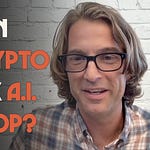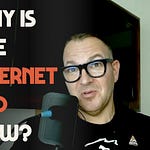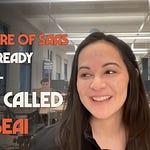Episode 1 of The Leverage Podcast is live now!
Can I ask a favor? Would you mind subscribing on your favorite podcasting platform? It makes a world of difference for the long-term success of this publication. If you like the episode, please share it with a friend!
Bryce Roberts had it all. He and his partners had helped create the category of seed investing and in so doing, got in early with some of the greatest companies of the 2000-2010s including Figma, Planet, CTRL Labs, and many others. Most people would ride off into the sunset, but instead, Bryce bet it all by launching a new VC firm called Indie. The fund was centered on his vision of the future where entrepreneurs would raise less capital and still have multi-billion-dollar outcomes.
Then, it failed. Crashed and burned. Poof.
In our conversation Bryce described it as “ego death,” where he felt like he had let everyone down. Then, slowly, painfully, the market shifted to be in favor of his vision. With AI, there has been a remarkable decrease in operational costs and founders are looking for something different than the Sand Hill playbook of spend big and raise bigger. Indie 2.0 was born and is actively deploying capital today.
I found this conversation personally meaningful. His focus on ethos over ego has rattled around my brain ever since we recorded this session and changed how I look at my work. If you still aren’t convinced it's worth a listen, here are my four big takeaways:
1. Success is found in your core motivation
Bryce frames his first attempt at Indie as an exercise in being “right” rather than being useful. Indie 2.0 is built to be lighter on ego, heavier on service—less about proving a contrarian thesis and more about giving ambitious founders a credible alternative path.
“I would actually say it’s like ego over ethos is how I chose to do the first one. I wanted to be right. I was more interested in being right than being good… going through the ego death of winding down Indie the first time, like all of that’s gone. I’ve got nothing to prove.
2. Seed then, AI now
He draws a clean line between the 2005–2010 seed boom and today’s AI era. Back then, open source + commodity hardware + AWS + AdSense collapsed costs and unlocked distribution. Founders could ship with small checks and real optionality. Today, AI similarly compresses the “cost of code,” letting tiny, hand-picked teams build substantial, profitable products (he cites Gamma; also points to Linear and Vanta). The lesson is that when inputs get cheaper, new company shapes—lean, durable, founder-controlled—become inevitable.
“I think it was both simultaneously… you had open source software—Ruby on Rails, Linux, MySQL—so you took millions and millions of dollars of infrastructure cost and shrunk it to effectively zero. And then you had online distribution—Google AdSense—so you could plug in a business model and start monetizing right out of the gate.”
3. Cult dynamics as distribution (and why it helped Indie)
I recently argued that when code gets cheap, belief becomes the scarce asset—and that “founding a cult” is an emerging distribution playbook. Indie’s origin story fits that frame: Bryce says the early community did feel cult-like because he “said the quiet part out loud” about the startup-industrial complex. Opening the doors, open-sourcing docs, and amplifying credible voices created a self-propelling missionary network. That affinity didn’t solve LP bucketing problems, but it did give Indie a top-of-funnel of aligned founders and allies—a real tailwind for deal flow and mindshare, exactly the kind of distribution-through-belief my essay described.
“People wanted a different experience… there’s this new opportunity space here. We can define it in a way that’s more native to us. Come one, come all. Let’s get credible voices in here, amplify them… For the first few years, that was a huge tailwind for us.”
4. “More shots on goal” for the future we want
This is Bryce’s why. He’s not anti-VC; he’s anti-monoculture. If the only funded path is the venture treadmill, you compress the range of futures possible. His fund exists to widen it—to let serious founders pursue ambition without surrendering sovereignty. He ties this to a broader warning: in an era of AI-assisted cognition, outsourcing strategy is dangerous; the stakes are high, so we need many independent attempts at building the future.
“I want more than Marc Andreessen or Sequoia or anybody else dictating what future we get to live in. One way to avoid this venture-backed future is to create alternatives to it…the stakes are incredibly high. I want as many shots on goal for possible futures as possible.”
I keep coming back to that phrase: "I've got nothing to prove." There's something liberating about that—and terrifying. What would you build if proving yourself wasn't the point?
Hit subscribe wherever you listen, and let me know if this conversation changes how you think about your own work. It certainly changed mine.










